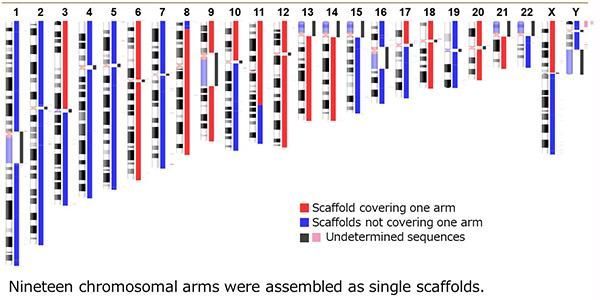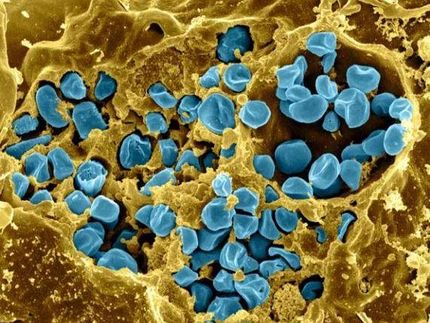Constructing the first version of the Japanese reference genome
The Japanese now have their own reference genome
The Japanese now have their own reference genome thanks to researchers at Tohoku University who completed and released the first Japanese reference genome (JG1). Their study was published in the journal Nature Communications.

The Ideogram of JG1
Tohoku University
"JG1 can aid with the clinical sequence analysis of Japanese individuals with rare diseases as it eliminates the genomic differences from the international reference genome," said Jun Takayama, co-author of the study.
Back in 2003, the Human Genome Project, through a gargantuan global effort, cracked the code of life and mapped all the genes of the human genome.
Since then, more accurate versions of the human reference genome have been realized. Aiding this has been the advancement in next-generation sequencing technologies that allow for short read of approximately several hundred bases in a massively parallel way, reducing the costs and time to sequence DNA and RNA.
The international reference genome is based on an individual of African-European descent. This hampers investigating genetic variants or rare disease and cancer driving genes in Japanese owing to natural genomic difference reflective in different populations.
Associate professor Takayama and professor Gen Tamiya from Tohoku University's Tohoku Medical Megabank Organization (ToMMo) and the Advanced Research Center for Innovations in Next-Generation Medicine (INGEM) and colleagues from Tohoku University School of Medicine, School of Information Sciences, RIKEN AIP Center, and Miyagi Cancer Research Institute developed JG1 as the first part of the Japanese Reference Genome Assembly (JRGA) project.
This high-precision reference sequence is applicable to the whole human genome analysis and was constructed by analyzing the genomes of three Japanese individuals using high-coverage, long-read next-generation sequencing technologies.
Researchers can efficiently investigate the causal genetic variants of rare diseases and cancer driver genes with JG1.
"JG1 may be applicable to other populations, especially those from Asia. In addition, with the JG1, the accuracy of the Japanese allele frequency and haplotype reference panels gets improved," added Takayama.
Most read news
Other news from the department science

Get the life science industry in your inbox
By submitting this form you agree that LUMITOS AG will send you the newsletter(s) selected above by email. Your data will not be passed on to third parties. Your data will be stored and processed in accordance with our data protection regulations. LUMITOS may contact you by email for the purpose of advertising or market and opinion surveys. You can revoke your consent at any time without giving reasons to LUMITOS AG, Ernst-Augustin-Str. 2, 12489 Berlin, Germany or by e-mail at revoke@lumitos.com with effect for the future. In addition, each email contains a link to unsubscribe from the corresponding newsletter.



















































